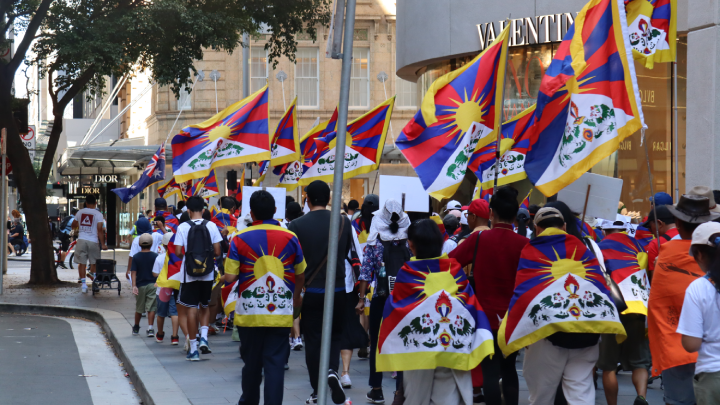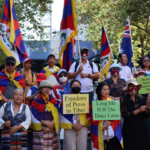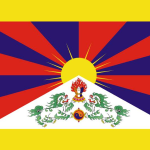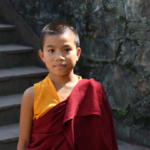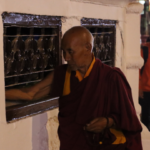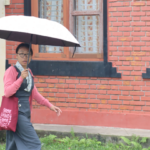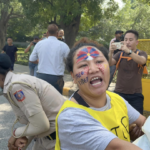NSW Tibetan Community Rallies for Freedom: An Interview With Kyinzom Dhongdue
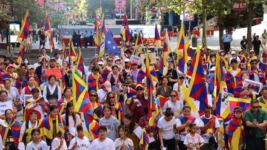
Sydney’s Martin Place was ablaze with the multicoloured Tibetan flag on Sunday morning to mark the 65th anniversary since the Tibetan Uprising of 10 March 1959, which saw thousands turn up on the streets of the Tibetan capital of Lhasa to protest against Chinese occupation.
The Chinese Community Party commenced its invasion of Tibet in 1950. The uprising of 1959 saw Tibetans surround the Potala Palace to protect their leader the Dalai Lama from a rumoured assassination plot. And the Chinese brutally suppressed the uprising, killing thousands.
The NSW Tibetan Community rallied in the CBD before marching on to the Chinese Consulate in Camperdown on Sunday. And as they marched, they chanted for an end to China’s colonial boarding schools, an end to the cultural genocide and an end to the desecration of the Tibetan environment.
Sydney Criminal Lawyers spoke to NSW Tibetan Community spokesperson Kyinzom Dhongdue about the illegal occupation of her homeland, the escalating repressions in Tibet and the pressure the Australian government could apply to its greatest trading partner in terms of the Tibetan people.
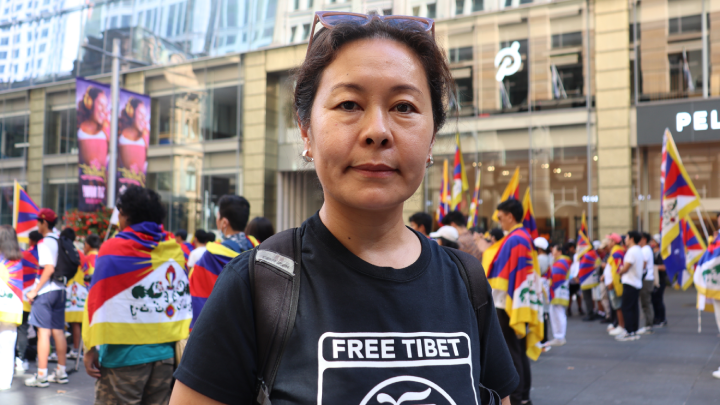
The Tibetan Community of NSW has gathered in Sydney’s Martin Place on the 65th anniversary of the Tibetan Uprising.
Kyinzom, can you tell us about why hundreds of Tibetans is Sydney are marking this day?
This is 10 March 2024, which sees the Tibetan community around the world, including here in Australia, here in Sydney right now, marking the 65th anniversary of the Tibetan uprising.
This is the day in 1959, when Tibetans took to the streets of the capital Lhasa to protest against China’s illegal occupation of Tibet: an occupation that continues to this day – a military occupation.
The uprising that happened on the 10 March 65 years ago led to a brutal crackdown and forced the leader of Tibet, the Dalai Lama, and thousands of Tibetans, including my own parents and grandparents, into exile.
So, the Tibetan diaspora that started in the 1950s has spread far and wide, including here in Australia.
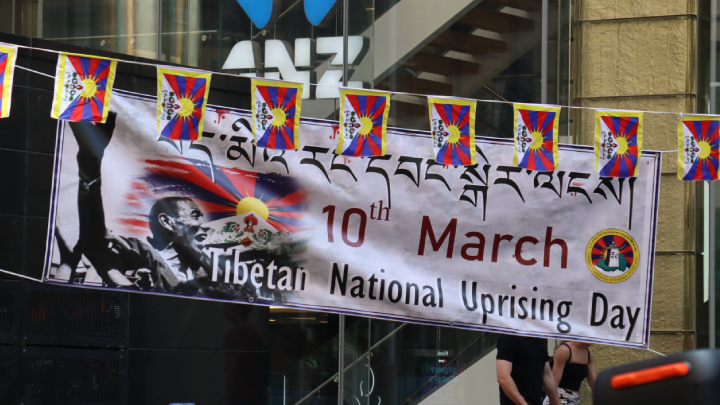
How would you describe the situation in Tibet today, coming on around 74 years since China invaded the country?
The military occupation continues. The human rights situation is getting from bad to worse, as it’s away from the gaze of the international community.
I say away from the gaze of the international community because they have literally physically closed Tibet off from the international community.
Tourists are not able to visit Tibet freely. If you are a foreign tourist, you have to be part of a government approved and controlled tour, which means you don’t have the opportunity to interact with the local population and understand the true situation in Tibet.
And if you do visit Tibet, you will see the levels of surveillance that exist at all levels of society. Every street has surveillance cameras and cameras are on every single building. Even in the private homes, in the driveways, you will see the surveillance cameras.
Every few blocks there is a police station. Every few blocks there is a police checkpoint. But it is not just the physical surveillance that has gone to a really extreme level, it is also the surveillance on your phones. It is the surveillance on your internet devices.
Literally, every website you visit, and every phone call are controlled and monitored by the Chinese government.
This is why Tibet is now ranked as the least free country on Earth. There is not a single independent journalist there.
While Tibet has been closed off from the rest of the world, and Tibetans inside Tibet are not allowed to travel out of their country, Tibetans from Australia are not able to visit their homeland or visit their families, not even when they are very sick and dying.
But China sends millions and millions of Chinese tourists every year, because they’ve turned Tibet into a spiritual Disneyland.
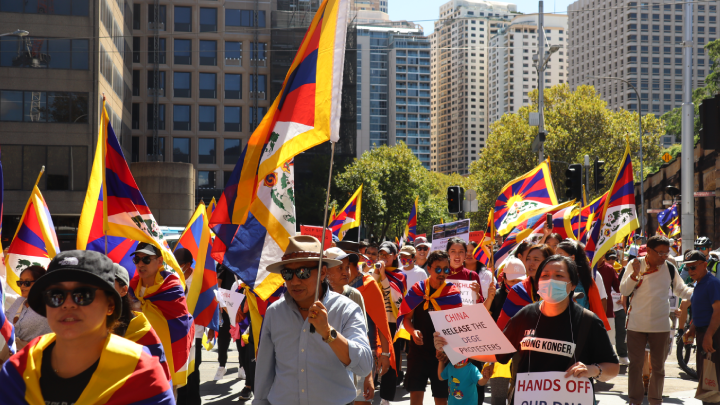
And lastly, Kyinzom, what’s the way forward for the Tibetan Freedom Movement?
Today, of course, we are here to stand with the brave people of Tibet, who continue to resist China’s illegal occupation of Tibet, but we are also here to tell the international community, especially Australia, that they have a special responsibility because of their economic relationship with China.
The relationship that Australia has enjoyed and benefited from – China’s 30 years of unimpeded growth – well, that has come at the cost of the human rights of the Tibetan people, because the Chinese Communist Party doesn’t have the legitimacy to control us.
It doesn’t have the legitimacy to rule Tibetans. It doesn’t have the legitimacy to rule the Uyghurs and the Hong Kongers.
But because of the economic growth that it has enjoyed, thanks to the relationship it has with countries like Australia, the CCP has not been held to account.
So, we have a responsibility to hold China to account, and really question our behaviour. And when I say our behaviour, I mean the Australian government’s behaviour and the Australian community’s behaviour.
Is this the right way to grow rich? By trading with a government that is committing crimes against humanity and genocide in Tibet and in East Turkestan.
